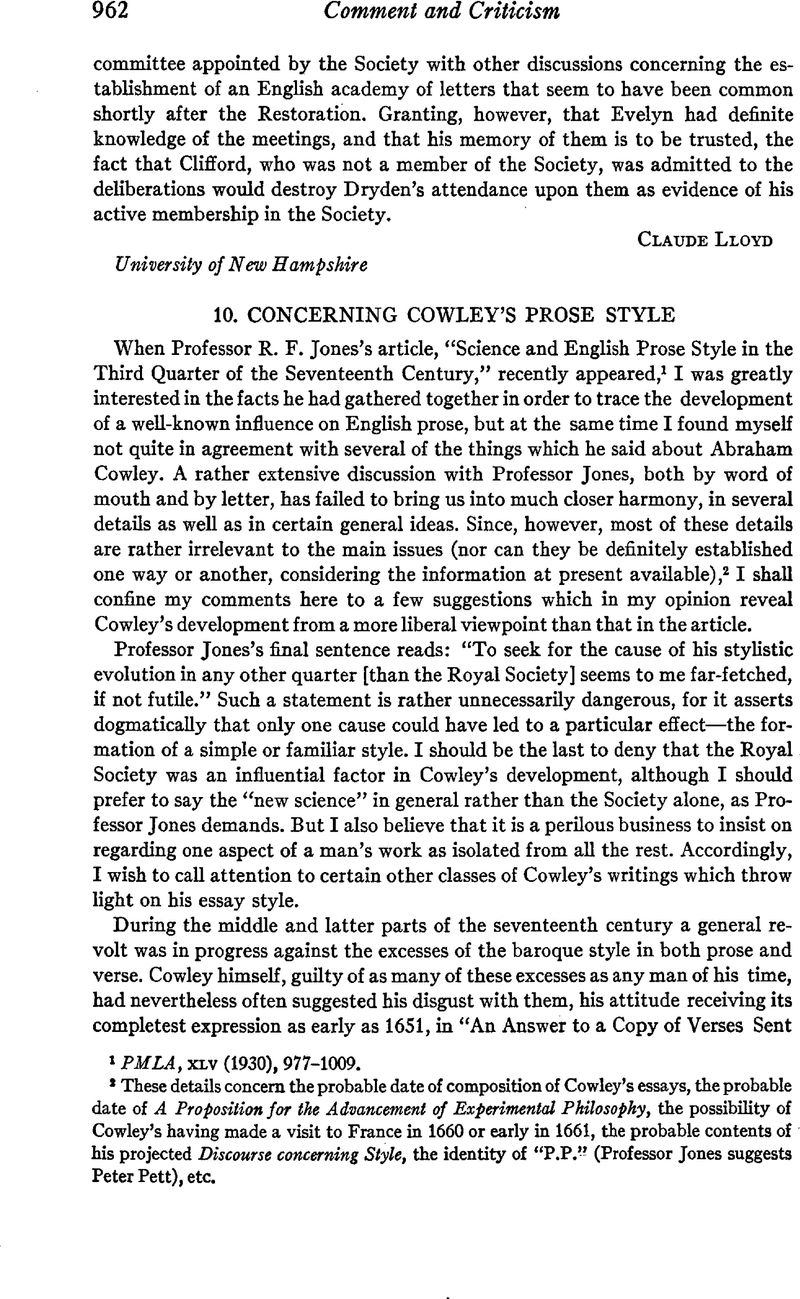No CrossRef data available.
Article contents
10. Concerning Cowley's Prose Style
Published online by Cambridge University Press: 02 December 2020
Abstract

- Type
- Comment and Criticism
- Information
- Copyright
- Copyright © Modern Language Association of America, 1931
References
1 PMLA, xlv (1930), 977–1009.
2 These details concern the probable date of composition of Cowley's essays, the probable date of A Proposition for the Advancement of Experimental Philosophy, the possibility of Cowley's having made a visit to France in 1660 or early in 1661, the probable contents of his projected Discourse concerning Style, the identity of “P.P.” (Professor Jones suggests Peter Pett), etc.
3 Professor R. S. Crane, of the University of Chicago, who has called my attention to this aspect of the discussion, tells me that he hopes soon to write a detailed study of this topic, including the influence of Aristotle's Rhetoric and the exact attitude of the seventeenth century toward it in comparison with the rest of his writings.
4 Cf. my article. “The Letters of Abraham Cowley,” MLN, xlii (1928), 369–375, which should be supplemented by additional information and letters from my forthcoming biography of Cowley (Oxford Press).
5 This thesis, in all of its aspects, I have tried to demonstrate in my forthcoming biography of Cowley, before referred to.
1 In three or four of the essays there is really nothing to indicate in what year they were written.
2 History of the Royal Society, pp. 57–59.
3 History of the Royal Society, i, 3.
4 Professor Nethercot can hardly expect us to consider seriously his article on the treatise as evidence of what Cowley would have written. The article is clearly only a compilation of Cowley's critical dicta and an attempt to relate them to the history of literary criticism. Many matters are introduced that could by no stretch of the imagination be listed under style. Furthermore, he all but ignores in his construction of the discourse what Sprat says about it, which in his present remarks he emphasizes as “a concise summary of the entire projected work.” In his article there is no comparing of ancient with modern authors, no “deducing all down to the particular use of the English Genius and Language.”
5 Of course, Professor Nethercot may present many letters covering a much wider period in his forthcoming biography of Cowley, but “What can we reason but from what we know?”
6 Robert Boyle reflects almost every idea of style known to his age, as I hope to make clear in an article upon which I am now engaged.
7 The influence of Aristotle is quite pronounced during this period, as I indicate in an article which is now in press, and Professor Crane's article will be awaited with much interest. The plainness advocated by the scientists, however, was not beholden to him.


